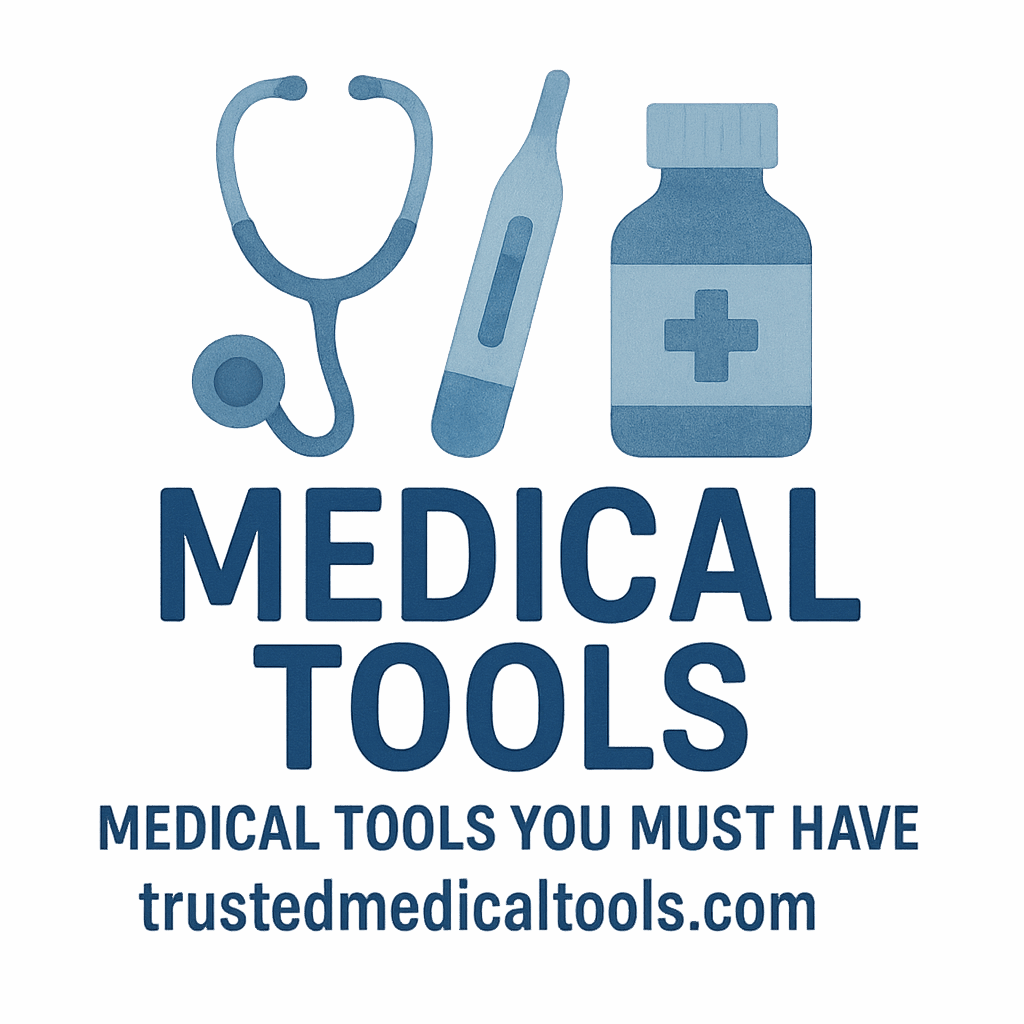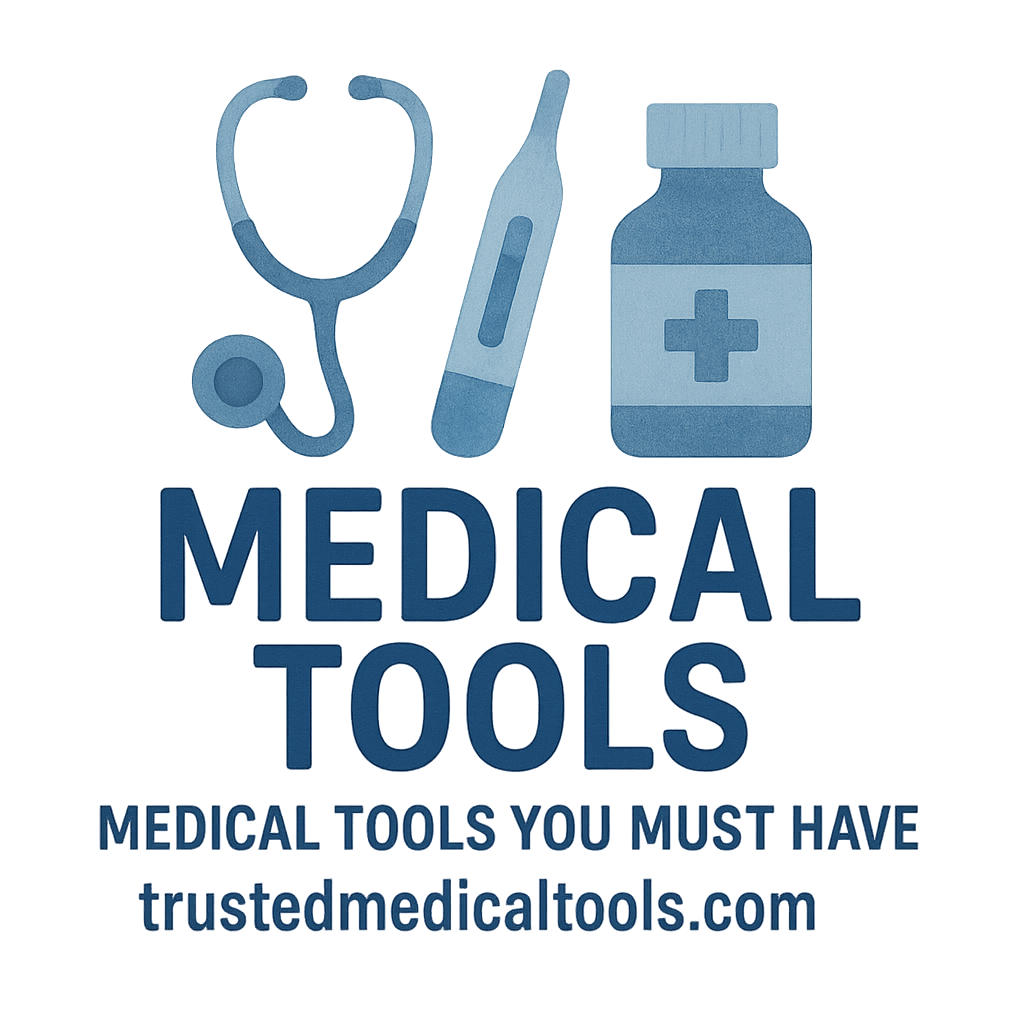1. Introduction
When you’re on the road, accidents can happen in the blink of an eye. Whether it’s a minor cut or a more serious injury, having the right first aid tools in your car can make a life-saving difference. Having the necessary medical tools can provide immediate care, stabilizing injuries until help arrives. In this article, we’ll look at the 7 essential first aid medical tools you should always keep in your car, ensuring you’re prepared for whatever the road throws at you.
2. The Basics of First Aid Kits for Your Car
A first aid kit should be a staple in every vehicle, but what exactly should it contain? A car first aid kit needs to be both comprehensive and easy to access. Ideally, it should fit neatly in your glove compartment or under the seat for easy access.
What Should a First Aid Kit Include?
A basic first aid kit should have:
- Bandages and gauze
- Antiseptic wipes and ointments
- Pain relief medications like aspirin or ibuprofen
- Tweezers and scissors
- Instant cold packs
- Medical gloves
- A first aid manual
Legal and Safety Considerations for Car First Aid Kits
While keeping a first aid kit in your car is a good idea, it’s also important to be aware of any local laws or regulations that may require specific items. Always make sure your first aid kit is up to date and fully stocked.
3. Bandages and Gauze: The Essential Tools for Quick Wound Care
One of the first things you’ll need in case of an injury is bandages and gauze. Whether it’s a cut from broken glass or a scraped knee, these tools will help stop bleeding and prevent infection.
Different Types of Bandages
- Adhesive Bandages: Ideal for small cuts and scrapes.
- Sterile Gauze Pads: Perfect for larger wounds that need more coverage.
- Elastic Bandages (e.g., ACE Bandages): Helpful for sprains and strains to reduce swelling.
Importance of Gauze in Wound Management
Gauze is essential in preventing infection by covering the wound and soaking up any blood or fluids. Having multiple sizes on hand ensures you’re prepared for both small and larger injuries.
For more guidance on choosing the right medical tools, check out our buying guide.
4. Antiseptic Wipes and Disinfectants: Preventing Infection on the Go
Preventing infection is key when managing injuries, and antiseptic wipes are a must-have in your car first aid kit. They’re quick, easy to use, and effective in cleaning wounds before you apply any bandages.
Why You Need Antiseptic Wipes in Your Car
Antiseptic wipes kill bacteria and viruses that could potentially cause an infection in an open wound. These wipes are small, portable, and should be a standard inclusion in every first aid kit.
Best Practices for Using Antiseptic Disinfectants
Clean the wound thoroughly with the antiseptic before applying bandages or gauze. This minimizes the risk of infection.
For other health-related products, check out our health equipment section.

5. Adhesive Tape: A Versatile First Aid Tool
In any first aid situation, adhesive tape is invaluable. It’s used to secure gauze, bandages, and even splints to provide stable care to an injury.
How Adhesive Tape Helps in Emergency Situations
Whether you’re securing a gauze pad or immobilizing a limb, medical adhesive tape ensures that the dressing stays in place, even under stressful conditions. It’s versatile, making it one of the top tools you need in your first aid kit.
Different Types of Medical Tape You Should Have
- Hypoallergenic Medical Tape: Ideal for sensitive skin.
- Waterproof Tape: Ensures that your dressings remain intact, even in wet conditions.
6. Pain Relief: Over-the-Counter (OTC) Medications
Pain relief is an important element of any first aid kit. From sprains to headaches, OTC medications like ibuprofen or aspirin can help alleviate pain and inflammation, especially when professional medical help is not immediately available.
Recommended OTC Pain Relief Options for Your Car
- Ibuprofen (Advil, Motrin): Great for inflammation and pain relief.
- Acetaminophen (Tylenol): A non-inflammatory option for reducing pain.
How Pain Relief Medications Can Help in Emergency Situations
Having pain relief medications in your car provides you with a tool to manage pain until you receive professional medical attention. Be sure to regularly check expiration dates on all medications to keep your kit current.
For more on OTC medication options, head to our OTC product section.
7. Tweezers: A Handy Tool for Removing Splinters and Small Objects
When it comes to injuries involving small objects like splinters, glass, or other debris, tweezers are crucial. They allow for the safe and precise removal of foreign objects that could otherwise cause more harm.
How Tweezers Help with Emergency First Aid
Whether you’re removing a splinter or piece of glass, tweezers ensure that the job is done without causing additional injury. You’ll want a pair that’s made of high-quality, medical-grade stainless steel.
For more tools related to emergency care, visit our first aid box section.
8. Instant Cold Packs: Essential for Sprains, Strains, and Bruises
Cold therapy is essential for reducing swelling and pain. Instant cold packs are easy to use and provide immediate relief from strains, sprains, or bumps.
How Instant Cold Packs Work
These packs activate a chemical reaction to cool rapidly, which helps numb the area and reduce swelling. They’re portable and require no refrigeration, making them a perfect fit for your car first aid kit.
The Importance of Having Cold Therapy Tools in Your Car
If you suffer a sprain, strain, or bruise, an instant cold pack is one of the best ways to minimize pain and swelling. Keep them in your car for quick access during emergencies.
Explore more health tools for everyday use.
9. Thermometer: A Critical Tool for Assessing Health Conditions
If you or someone in your vehicle develops symptoms of illness, such as a fever, having a thermometer in your first aid kit can help you assess the severity of the situation.
Why You Should Keep a Thermometer in Your Car
Thermometers allow you to check for fever, which can be crucial in determining whether a medical emergency is occurring. In emergencies, knowing whether someone has a fever can guide your next steps.
Different Types of Thermometers and Their Uses
Digital thermometers are fast, easy to use, and highly accurate. They’re the best option to have in your car.
10. Scissors: Cutting Through Bandages, Tape, and Clothing
Scissors are often overlooked in first aid kits but can be essential when you need to cut through bandages, tape, or even clothing to access an injury.
Why Scissors Are Important for Emergency Care
When you’re trying to remove bandages or cut away clothing to treat an injury, medical scissors are your best friend. They’re designed to safely cut through a variety of materials without causing harm.
Types of Medical Scissors for Car First Aid Kits
Look for safety scissors with rounded tips to avoid injury when cutting. These are the best option for a car first aid kit.
11. First Aid Manual: A Lifeline for When You Don’t Know What to Do
Having a first aid manual in your car is a lifesaver in emergencies. Even if you know basic first aid, having a guide ensures you follow the proper steps when managing injuries.
Why Having a First Aid Manual is Crucial
During stressful emergencies, you might forget key steps. A manual can help you stay on track and provide step-by-step guidance on how to handle various injuries or medical conditions.
Check out our recommended first aid manuals for reference.
12. Gloves: Protecting Yourself and Others
Medical gloves are essential for personal protection when treating injuries. Wearing gloves ensures that you avoid direct contact with blood or bodily fluids, reducing the risk of infection.
Why Medical Gloves Are Essential for First Aid
Whether you’re helping someone with a serious injury or handling medical equipment, gloves offer an extra layer of protection. They help maintain hygiene and keep both you and the injured person safe.
Types of Gloves to Keep in Your Car
Choose latex-free gloves if you or anyone you know has a latex allergy. Nitrile gloves are an excellent choice for general use.
13. Personal Medication: For Pre-existing Health Conditions
If you or anyone else in your car has a pre-existing health condition, make sure to store any necessary medications in your vehicle’s first aid kit. This is especially critical for conditions like diabetes, allergies, or asthma.
Why Your Prescribed Medication Should Be in Your Car
Having your prescribed medications on hand ensures you can manage chronic conditions while on the go, potentially preventing emergencies.
How to Store Personal Medication Properly
Store all medications in a cool, dry place in your car. Make sure you keep them in their original packaging and check the expiration dates regularly.
14. Conclusion
A well-stocked first aid kit in your car can be a literal lifesaver in an emergency. By keeping the seven essential tools outlined above, you’re preparing yourself to handle a variety of unexpected situations. Always check your kit regularly to ensure that all items are in good condition and replace any expired medications.
15. Frequently Asked Questions (FAQs)
What Are the Most Essential Items for a Car First Aid Kit?
- Bandages, gauze, antiseptic wipes, pain relief medications, and medical scissors are essential.
Can I Use a Regular First Aid Kit for My Car?
- A regular kit can work, but it’s better to tailor it to car emergencies with portable items.
How Often Should I Check My First Aid Kit?
- Check your first aid kit every six months and replace any expired items.
Can I Use Expired Medication from My First Aid Kit?
- It’s not recommended. Expired medication may lose its effectiveness.
How Do I Properly Store a First Aid Kit in My Car?
- Store your kit in an easily accessible place like the glove compartment or under the seat.
What Is the Importance of Antiseptic Wipes in a First Aid Kit?
- Antiseptic wipes help clean wounds and prevent infections.
Should I Include a CPR Mask in My Car First Aid Kit?
- Yes, it’s a good idea to have one in case you need to perform CPR during an emergency.
For more first aid supplies and tips, visit our home essentials page.


